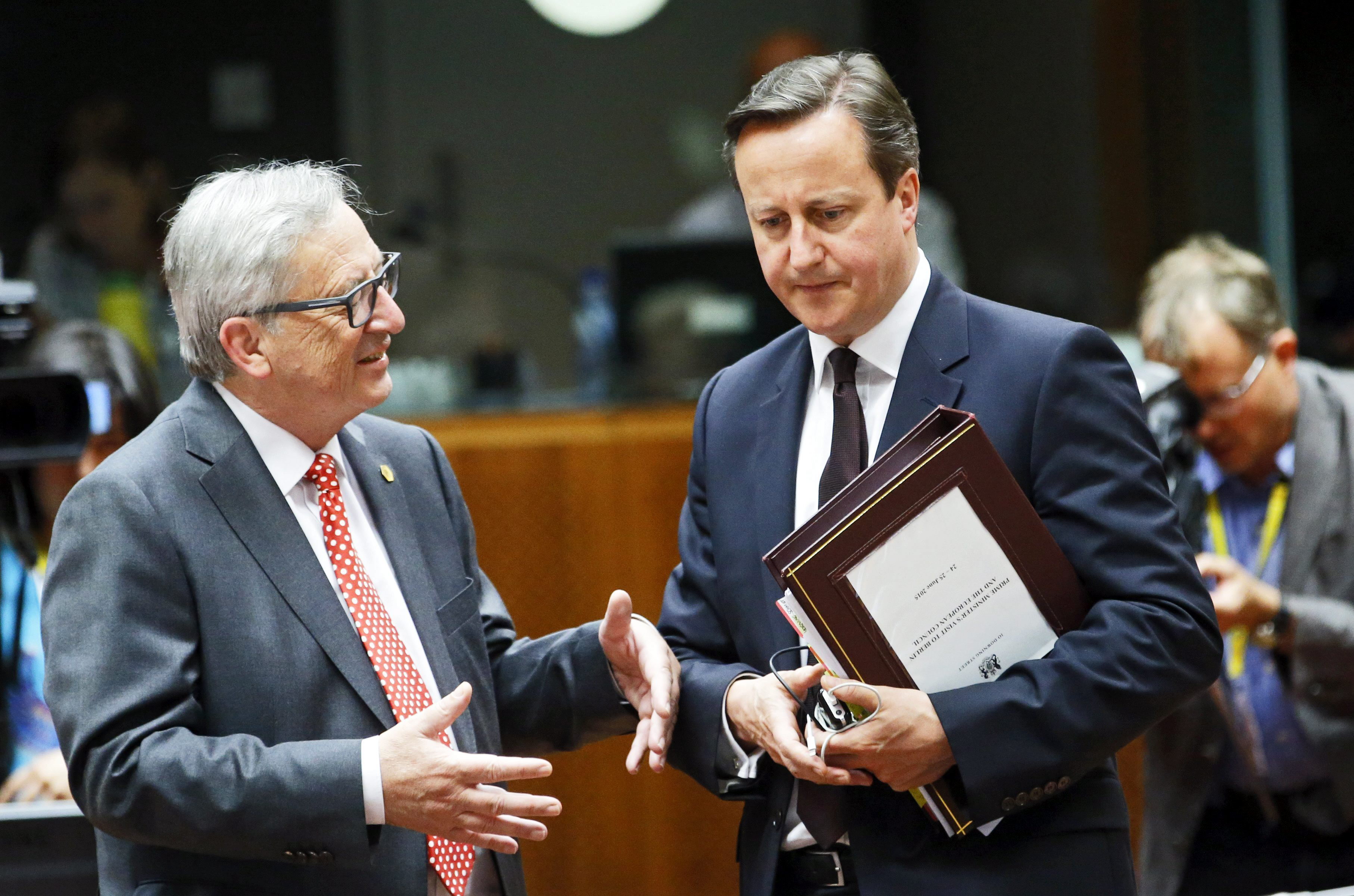Public opinion can be swayed either way in EU referendum

European Commission President Jean-Claude Juncker (left) meets British Prime Minister David Cameron ahead of a meeting at the EU Commission headquaters in Brussels on Feb.16, 2016.
London—It is hard to predict whether Britain will ultimately leave the European Union, scholars said at a discussion on the topic organized by University College London (UCL) on March 8.
Though some are strongly for or against the move, the public at large could be swayed either way, participants in the forum remarked.
Debate between the two sides has escalated since Prime Minister David Cameron announced that a referendum would be held on June 23 this year to decide if the United Kingdom should retain its EU membership.
The so-called Europhiles argue that the United Kingdom and the European Union have mutual interests, and that EU membership benefits both in finance, trade and investment. In these areas, other EU members are Britain’s significant partners, and the European Union has provided a better platform for Britain to do business and trade with other parts of the world. If Britain leaves the European Union, both sides will lose, say those in favor of staying.
“This is a very important economic issue because the European Union is basically about economics. Then of course there is also political union,” said former Danish MP Charlotte Antonsen. The business community is interested in all the details of economics, while the ordinary people are more concerned about whether they will have and keep a job. It is necessary to remind people of the economic issues on a higher level where members within the European Union can work together to promote growth, she added.
The City of London announced recently that it favors Britain staying in the European Union. Antonsen said this is an important decision given that Britain’s EU membership can benefit trade and finance.
On the other side,the “Eurosceptics” argue that EU membership has cast a shadow on Britain’s national identity and pride. They contend that migration within the EU threatens national security, job security and social welfare. The current refugee crisis has made it all the more clear that Britain can only control its border when it leaves the European Union, those in favor of Brexit argue.
“Eurosceptism made this referendum possible in the first place, ” said Simon Usherwood, senior lecturer in politics at the University of Surrey.
“The ‘no’ side would say that if you are European, you are not British any more, but I disagree with that,” said Antonsen, adding that people are, first of all, of their own nation, and on top of that, they have some rights in Europe. Being a part of the European Union does not mean losing national identity. Instead, leaving the European Union will weaken Britain, she said.
Former Irish Minister of State for Trade and Development Joe Costello said it is almost impossible to predict the final results of the referendum, which could be affected by so many factors and manipulated by different parties, who could influence people’s decision through their campaigns and PR, by making use of people’s prejudices and fear.
“As people get exposed to more information and understand more about the EU, they might change their mind.” Ushrewood said thatfor most people, EU membership is not their major concern. They care more about the state’s economy and the country as a whole, and they are more concerned about their jobs and welfare. Although EU membership might have an impact on those issues, it does not play a decisive role. “Most people do not have a very strong opinion, which means that both sides could make arguments that may change people’s minds,” he observed.
Taking the 1975 referendum as an example, Usherwood said a big shift in opinion happened in a very short time, and the number of people in favor rose from about one-third to more than two-thirds. Therefore, there is still a lot to be done in the campaign, and it will affect how people vote. But it is still too early to say, he added.
Antonsen said the referendum is, to an extent, an emotional thing.
“Emotion really matters, since many people do not have enough knowledge to make such reasonable decisions,” said Usherwood. Emotion is the easiest way to make people believe a particular argument, which makes the referendum so much more unpredictable, he said.
Jiang Hong is a reporter at the Chinese Social Sciences Today.
